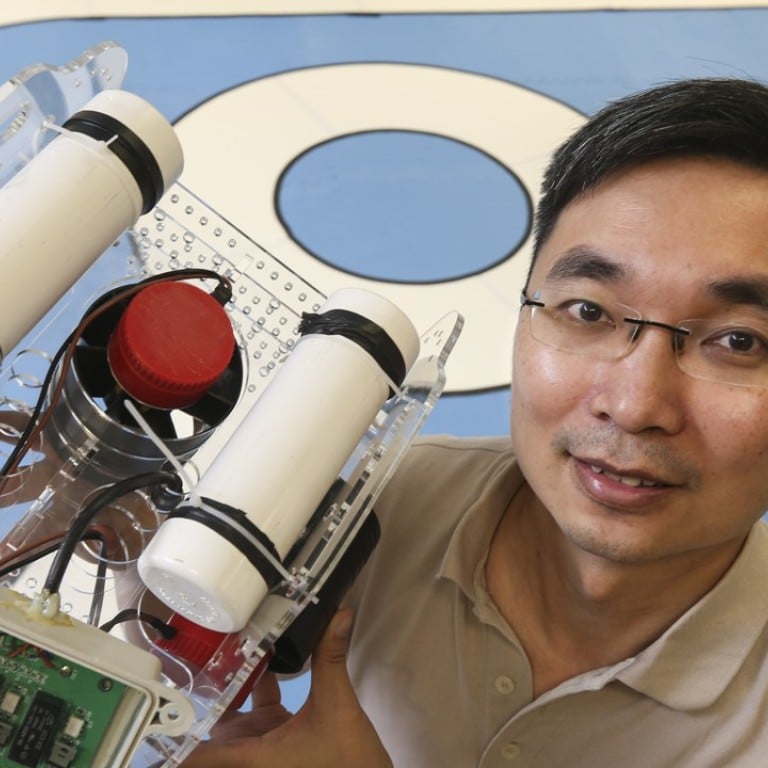
Hong Kong academic combines technology and community service for a winning formula
HKUST professor Woo Kam-tim sets up centre involving students in projects such as an app offering speech therapy for those with language learning difficulties
Hong Kong academic Woo Kam-tim is no armchair critic who just makes observations about society from the classroom.
The associate professor of engineering education at Hong Kong University of Science and Technology prefers a hands-on approach, engaging with the community to improve lives and pushing his students to do the same.
He sets a good example by founding the Centre for Global & Community Engagement, hoping to encourage students from all across Hong Kong to explore ways in which they can use their skills to contribute outside the classroom walls.
“I really hope to encourage more interaction between students and society,” Woo said.
“This is how we as a community can improve our lives, collectively. Often, underprivileged people don’t have access to resources that aren’t necessarily financial – like opportunities, for example. What they want the most is not for us to give them extra help or special services, but for people to treat them like everyone else, as equals.”
One of the centre’s biggest projects is the annual Underwater Robot Competition.
As part of the project, students in the city, including those with special educational needs such as the visually impaired, are invited to attend a workshop, where Woo will teach basic engineering concepts for a few hours. They are then given the same materials to build their own robots.

Woo stressed that the point of the contest was to encourage a diverse group of students to work together so they can better understand and help one another.
“Most robot competitions [usually see] robots on land, male competitors and top-ranking students. I wanted to break all three stereotypes, so the centre started its own competition. We chose underwater robotics, and encouraged females and students of all levels to take part,” he said.
Another project by the centre is an app built by Woo and some students. The app offers speech therapy for Hongkongers with language learning difficulties. Using a mobile device, they can talk to the app to hone their listening and speaking skills. The app then tells users whether they are saying the words correctly.
Woo’s centre teamed up with speech therapists and schools to recruit student volunteers in order to train the app’s machine learning algorithm to recognise accurate speech.
“Hongkongers always think of community contribution as selling stickers on the weekends, raising money, or cleaning the beach. We should continue doing these things, but the centre introduces an alternative type of community service.
“We’re bringing technology into society to help people,” Woo said.
HKUST’s School of Engineering has nominated Woo for the South China Morning Post ’s Spirit of Hong Kong Awards in the Community Contribution category.
“I used to think that engineering was about designing products. There are actually very few people who would put engineering and community service together. If students can combine the two, they will come out into the workforce and know how to consider people’s needs when creating products. Society will be better off that way,” Woo said.
Woo admitted that it was not easy at first working at the centre as he had limited resources. But he has since inspired those around him to join in his efforts by leveraging the resources and skills they have as academics.
“At first, it was just me, but now there are an increasing number of colleagues doing this with me.”
